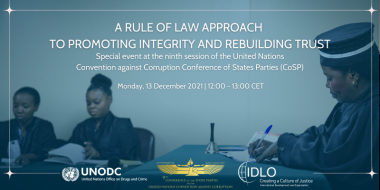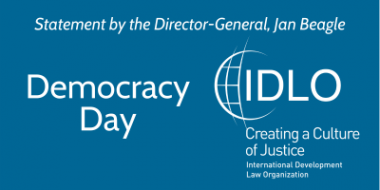IDLO's Kyrgyzstan Project: New Systems, New Mindsets
In a bare-bones, underheated court house in snow-bound Issy-Kul, Kyrgyzstan, a woman tells IDLO a story. This story is her own. She tells how, just out of girlhood, she was studying law, away from her village. Once, while on a visit back home, the young woman saw a car pull up. Men jumped out and grabbed her: she was, she knew, being bride-kidnapped.










